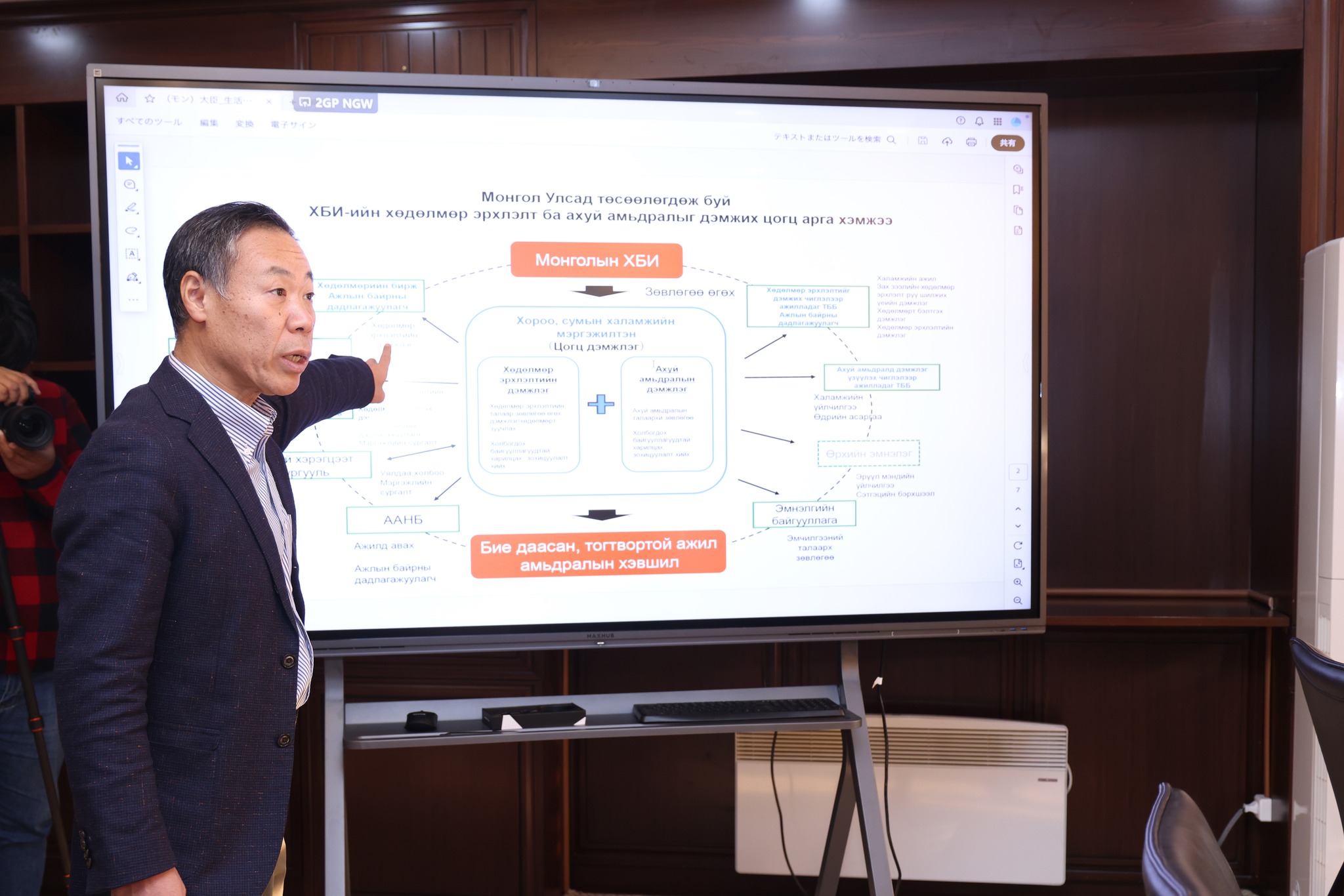Supporting Lifelong Welfare Systems: Learning from Japan’s Approach to Disability Support
The Minister for Family, Labour and Social
Protection, L. Enkh-Amgalan,
met with Chief Advisor Chiba Hisao of
the project “Strengthening the
System for Supporting the Employment of People with Disabilities” to
review Japan’s comprehensive approach to supporting people with
disabilities. Japan’s model is built around two
main pillars: employment support and daily living support.
Key
Aspects of Japan’s Support System:
1. Employment Support:
•
Employment exchanges:
Facilitating job matching for people with disabilities.
•
Regional centers for people with
disabilities: Local centers dedicated to providing resources and
guidance.
•
Special needs schools: Education
institutions tailored for individuals with disabilities.
•
Job placement and on-the-job training:
Collaborating with businesses to place individuals in jobs and provide
training.
2. Daily Living Support:
•
Support during the transition to the
open labor market: Assisting individuals as they enter mainstream
employment.
•
Welfare employment: Providing
supported work environments for people with disabilities.
•
Welfare services: Offering
services like day care, health services, and therapeutic consultations to
promote independence.
Japan’s
Integrated Approach:
Japan’s integrated services empower people with disabilities by
helping them develop independent and
sustainable work and life habits, creating an environment where they can
thrive both professionally and personally.
Challenges
and Gaps in Mongolia’s System:
While Mongolia has made
strides in supporting people with disabilities, the current system still faces
limitations:
•
Lack of comprehensive welfare services,
such as day care.
•
Limited coverage for life
support services, particularly from NGOs.
•
Few established mechanisms for
providing comprehensive daily
living support.
During the meeting,
Minister Enkh-Amgalan expressed
a strong desire to model Japan’s
lifelong welfare system as a blueprint for Mongolia. The goal is to
create a comprehensive support
system that addresses both the employment and daily
living needs of people with disabilities. This will involve collaboration with experts from
relevant agencies to devise a detailed
plan for ensuring people with disabilities are supported throughout
their lives, offering greater opportunities for independence and inclusion in society.
